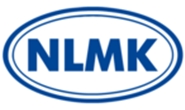Market Segment

July 13, 2018
NLMK Q2 Trading Update
Written by Sandy Williams
Sales by NLMK’s U.S. mills grew 15 percent to 638,000 metric tons in the second quarter of 2018 compared to the first, triggered by trade restrictions, said the company in a trade update on Friday.
NLMK USA sales included 369,000 metric tons of hot-rolled steel, 129,000 tons of cold-rolled, and 139,000 ton of galvanized steel.
Steel product pricing was up 10-15 percent quarter-over-quarter due to growing demand from the automotive and construction sectors, as well as steel import restraints.
Slab sales to its foreign subsidiaries, NLMK USA and NLMK Dansteel, decreased 30 percent quarter over quarter to 458,000 metric tons.
NLMK Group sales totaled 4.38 million metric tons, an increase of 6.0 percent quarter-over-quarter and 4.0 percent year-over-year, due to growth of flat steel sales in Russia and the U.S.
Group capacity utilization rate was at 99 percent during the quarter. Total steel output grew 1.0 percent to 4.38 million metric tons.







